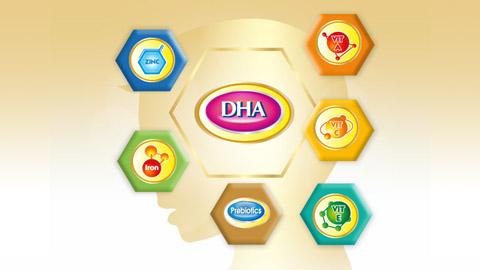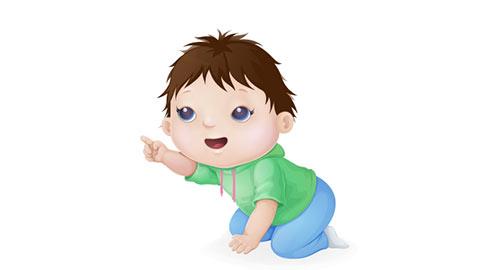Your growing baby is up to many amazing things. Along with good nutrition, there are several simple activities that will help nurture his development as you go through the day together.
Cognitive
-
Play cause-and-effect games.
Teach your baby about cause and effect by showing him how dropping blocks into a bucket makes a noise, how pushing a ball makes it roll, and how cranking the handle on a jack-in-the-box makes the doll appear.
-
Hide-and-seek.
Play hiding games by covering your face with a blanket that he can then pull off. As his understanding of object permanence grows, your baby will delight in finding you underneath each time, because he now knows you’ve been there all along—even when he couldn’t see you.
Motor
-
Set up an obstacle course.
For example, arrange small pillows for your baby to climb over and big cardboard boxes that he can crawl through.
-
Give him standing motivation.
If your baby is pulling himself up to stand, place toys on a low table so he can support himself while he reaches for them. Once he knows that they’re there, he will pull himself up to have a peek.
-
Walk together.
Support your baby in a standing position by holding both his hands. Take a step or two and encourage him to walk with you.
-
Let him join in feeding.
At mealtime, give your baby a wide-handled plastic spoon and a cup to encourage self-feeding. Instead of wrestling over control of the spoon—since your baby’s abilities are still evolving—use two spoons, with each of you holding one. Yours will likely do most of the work, but your baby will feel empowered.
-
Play patty-cake.
It’s a great game for developing your baby’s hand-eye coordination.
-
Clear the way.
Be sure that your childproofing strategies keep pace with your baby’s development. With each new skill, he’s likely to find new hazards you hadn’t considered earlier. For instance, as soon as your baby starts crawling, you’ll need to install gates at the top and bottom of any staircase. That will give him freedom to roam safely, since he won’t master stairs for quite a while.
Communication
-
Act as narrator.
As you stroll down the street, point things out to your baby, and describe what you see, what you’re doing, or where you’re going. Your baby now understands quite a lot of what you say through your body language, tone of voice, and context.
-
Carry on a conversation.
When your baby babbles in long strings of sounds that resemble words and sentences, wait for the inevitable pause and add your own sentence. This pattern teaches him how people have a back-and-forth conversation.
-
Create a library.
Keep a basket of board books on the floor that your baby can reach and look through all by himself.
-
Consider teaching your baby a few basic signs.
Around 8 or 9 months many babies are able to begin to understand and use a form of baby sign language. Signing gives babies another way to express wants and may help lessen frustration and tears—although if you try to force it or drill your baby on these signs, you may add to his frustration.
Social
-
Wave good-bye when you leave.
This practice teaches (and reinforces) an important lesson: When you leave, you’ll always come back.
-
Welcome a “lovey.”
Have your baby bring a favorite blanket or stuffed animal when he’s visiting a new place or staying with a sitter. Also called a transitional object, a lovey can boost his confidence and help him feel more secure.
-
Practice the art of distraction.
When your baby gets frustrated by your limit-setting, try distracting him rather than getting into a battle of wills. Move to another room, swap out a toy, or start a new activity.
-
Stay on schedule as much as you can.
Work out a schedule for feedings, naps, and playtime that’s roughly the same every day. Routine is very comforting and helps your baby feel secure. Weekends and weekdays should follow a similar pattern.
Like more activities to boost your child’s development? Join Enfamama A+ Club to learn more.




